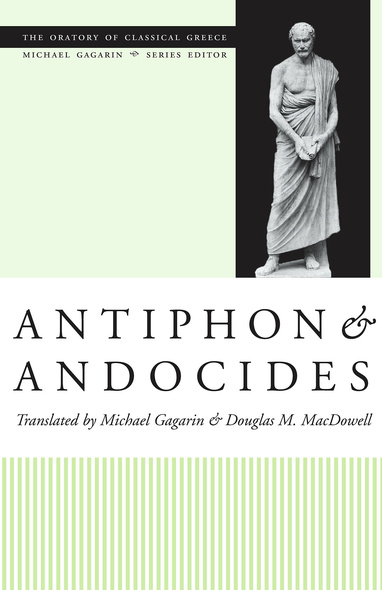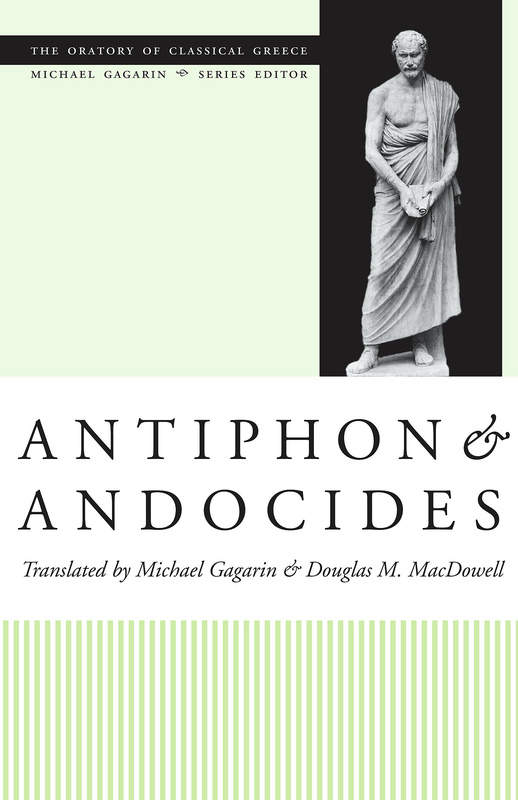Antiphon and Andocides
Classical oratory is an invaluable resource for the study of ancient Greek life and culture. The speeches offer evidence on Greek moral views, social and economic conditions, political and social ideology, and other aspects of Athenian culture that have been largely ignored: women and family life, slavery, and religion, to name just a few.
This volume contains the works of the two earliest surviving orators, Antiphon and Andocides. Antiphon (ca. 480-411) was a leading Athenian intellectual and creator of the profession of logography ("speech writing"), whose special interest was law and justice. His six surviving works all concern homicide cases. Andocides (ca. 440-390) was involved in two religious scandals—the mutilation of the Herms (busts of Hermes) and the revelation of the Eleusinian Mysteries—on the eve of the fateful Athenian expedition to Sicily in 415. His speeches are a defense against charges relating to those events.
In its primary aim of making Antiphon and Andocides accessible to a broader audience, the volume is eminently successful. Both translators show steady hands, accurately conveying the substance (and nuances) of the speeches in a clear, modern idiom...The book also succeeds in its aim of making the orators intelligible to novices; the introductions and notes provide a brief survey of some of the historical and legal complexities of Attic oratory. Indeed, Gagarin and MacDowell touch on an impressive range of topics within short compass.
- Preface
- Series Introduction (Michael Gagarin)
- Oratory in Classical Athens
- The Orators
- The Works of the Orators
- Government and Law in Classical Athens
- The Translation of Greek Oratory
- Abbreviations
- Note on Currency
- Bibliography of Works Cited
- Antiphon (Michael Gagarin)
- Introduction
- 1. Against the Stepmother
- The Tetralogies
- 2. First Tetralogy
- 3. Second Tetralogy
- 4. Third Tetralogy
- 5. The Murder of Herodes
- 6. On the Chorus Boy
- Fragment 1. On the Revolution
- Andocides (Douglas M. MacDowell)
- Introduction
- 1. On the Mysteries
- 2. On His Return
- 3. On the Peace with Sparta
- 4. Against Alcibiades
- Index





